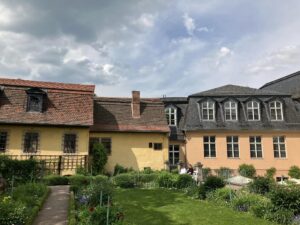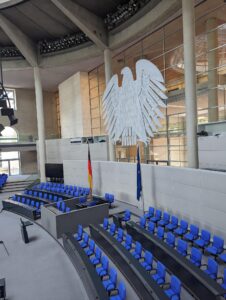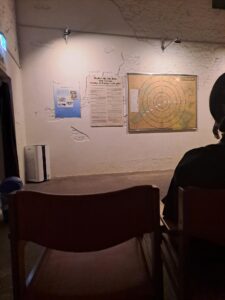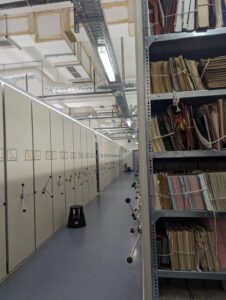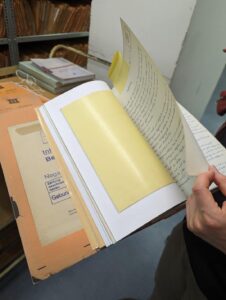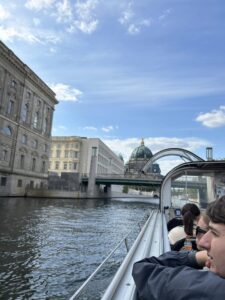by Gabe McGough ’25
The Durden Dickinson College program with Universität Bremen has been an excellent experience thus far! The Austausch (exchange) program is situated in the northwest of Germany and offers world-class courses in a multitude of fields, including but in no way limited to law, STEM, history, and art. During my time at Uni Bremen, I am focusing heavily on the University’s programs surrounding German international and domestic law as well as foreign policy. I chose Universität Bremen after first taking my academic goals, personal interests, and career aspirations into account. After weighing out the myriad pros of attending against the scarce cons, I decided that the unique academic system, the independence of living alone in a big city for the first time, and the myriad career connections and possibilities I would come across would be worth it.
When it comes to the benefits of studying abroad in Germany though, I have found that it is the small, everyday parts of life that have made the experience truly special. Of all the experiences that I have had that have had the most impact on me, the most changing have been my encounters with the local community, the differences in the academic environment, my living situation, and the exploration and travel I was able to do. Beginning with the locals, the people of Bremen are unique. In my experience, they have been incredibly polite, accommodating, and very supportive, especially when I would try to practice my (clearly non-natural) German with them. Overall, the city of Bremen has a very friendly culture. From the Easter Festival to the Latin-American Weekend, there is always something for the adventurous student to do! While the study-abroad experience is incredibly fun, there are academic requirements that I must meet to get credit for my Bremen courses back at Dickinson College. While the immense range of course options offered at the University of Bremen is incredibly impressive and the courses themselves are expertly run, certain aspects of German pedagogy have been a little strange to adapt to. For my courses this semester, virtually every assignment of substance is either a presentation, paper, or formal final exam. While cutting a lot of “graded for participation/completion” notes from the grade book seems slightly daunting at the start, the amount of free time for deep study of concepts found to be the most interesting and for working ahead on my major assignments, I believe the system supports learning more efficiently than the system adopted in the United States. Along with that and the engaging discussions led by professors and other students in Socratic-seminar-style classes, the academic environment at Uni Bremen is amazing to experience. Outside of academics though, there is quite a lot of free time for Dickinson Students.
In my free time between classes or before going to bed during the week, I spend some time in my dorm room, and by dorm room, I mean a miniature apartment with a bathroom and kitchenette. In my solo residence in Findorff, a beautiful and quiet part of the city right next to the Bürgerpark, I had to learn how to prepare every meal for myself every day, as well as meal plan (every major store in Bremen is closed on Sunday). Not only was it a delight to experiment in my kitchen cooking whatever I want, but it also allows me to be responsible for every step of independent living, including doing the dishes. The affordability of German grocery stores such as Edeka, Aldi, and Rewe make it incredibly affordable to cook delicious, sometimes extravagant, healthy meals. While studying hard and learning how to be successful on my own in one of the most beautiful and fun cities I have seen, I like to take the opportunities around me to go on fun trips with friends to see more of the beautiful part of the world I live in. Dickinson provides two week-long excursions per year to Vienna and Berlin, one in the spring and one in the fall. Luckily, my cohort and I were able to be a part of both.
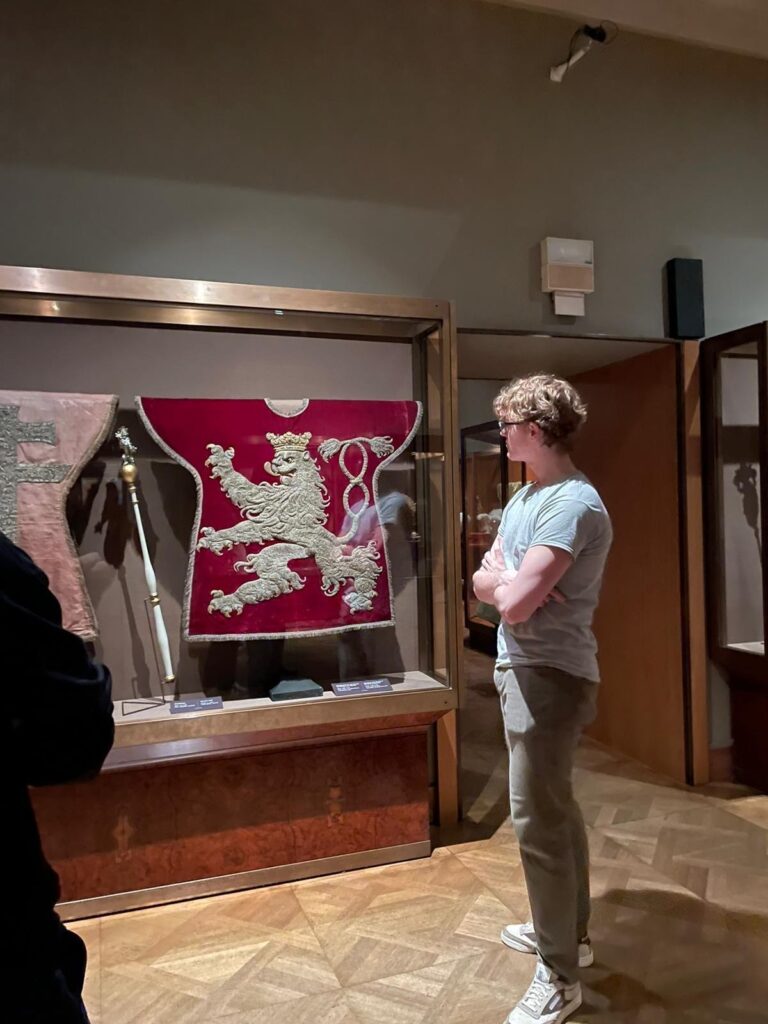
Photo: taken in the Imperial Treasury in Vienna
The Vienna trip was astounding. We were taken to ornate palaces, beautiful underground restaurants, to the resting places of a large portion of the Habsburg family, and so much more. In our free time, we were able to explore the beautiful capital of Austria and take in so much of the history and culture of the city. We are set to leave for our Berlin trip soon, which we all believe will be on par with the Vienna trip! The Cold War museums and shows in the theatre will likely be incredibly fun and a great place to learn the history and nuance of the area. While Dickinson provides trips though, the ease of Deutsche Bahn and the location of Bremen in proximity to amazing things to explore allows for incredibly easy one-day or weekend trips. As an example, two months ago I went to a city in the Netherlands, called Groningen, for a day to explore with a group of friends. To do the trip, we simply bought our cheap tickets on Flixbus, met at the bus station at 8:00 AM, rode the three and a half hours to the city, explored and enjoyed the cafés all day, then rode the bus back home a little after midnight. Trips like this are incredibly easy in Bremen, there are cities like Köln, Hamburg, and Hannover all within train distance, and there are a multitude of ways to get everywhere else.
Overall, I highly recommend any Dickinson student interested in applying for the Universiät Bremen Program to do so. It is fun, scary, exciting, amazing, and the most unique thing I have ever done. If you are interested in this experience I urge you to contact the Dickinson German Department. The Dickinson staff on campus here at Bremen are incredible at their jobs and are very kind and nice to work with. Thanks for reading about my experience in Bremen so far.

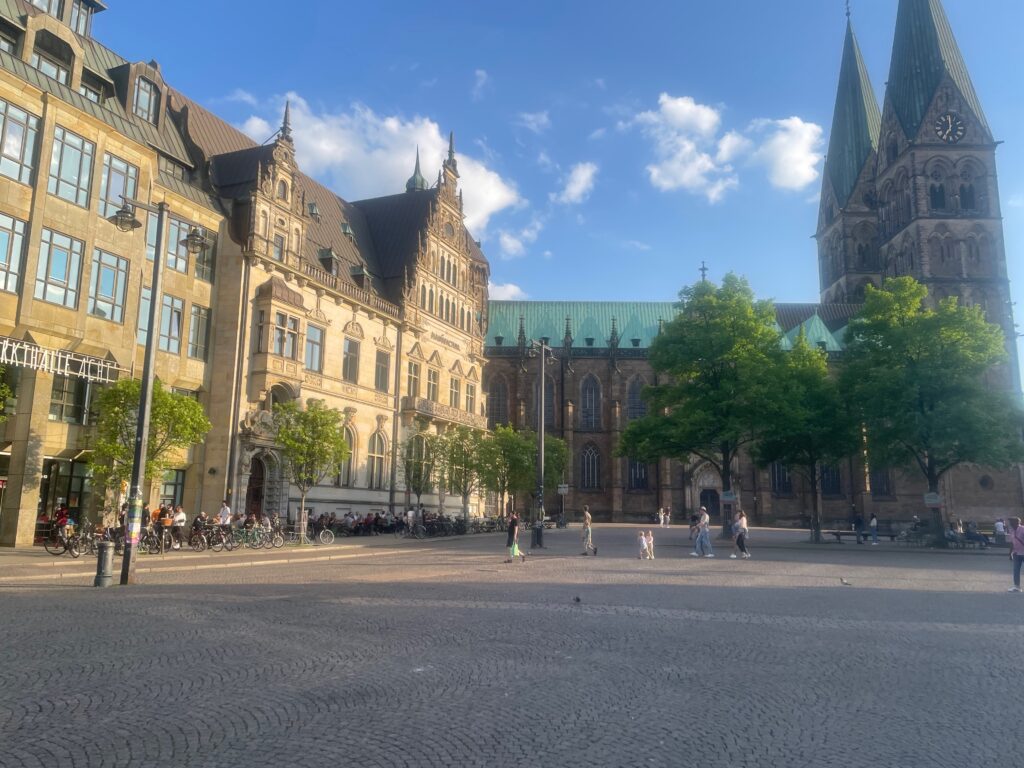
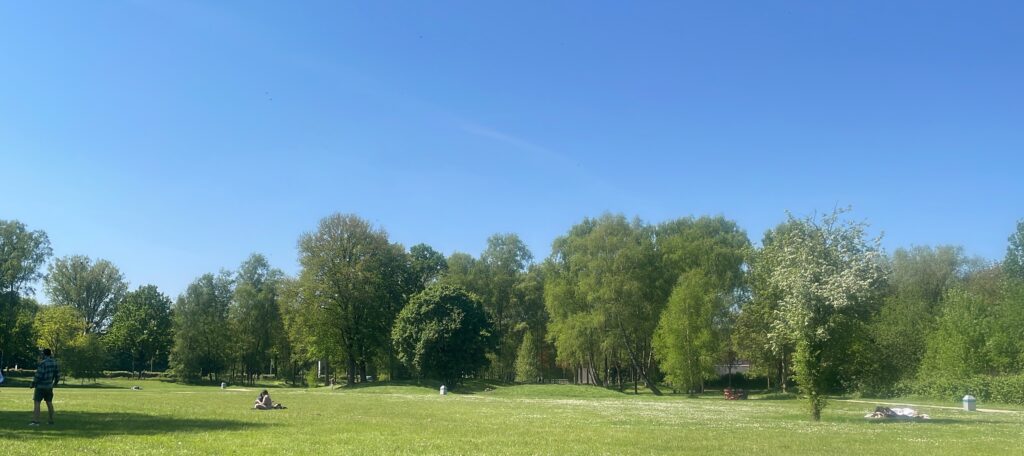
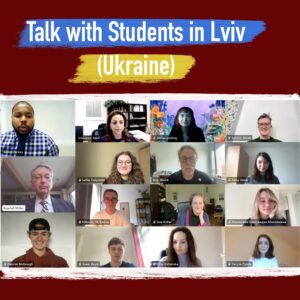
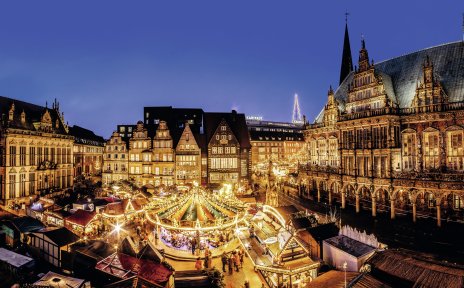
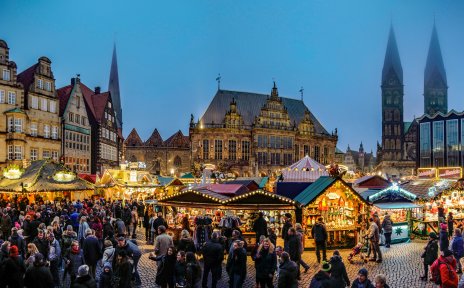
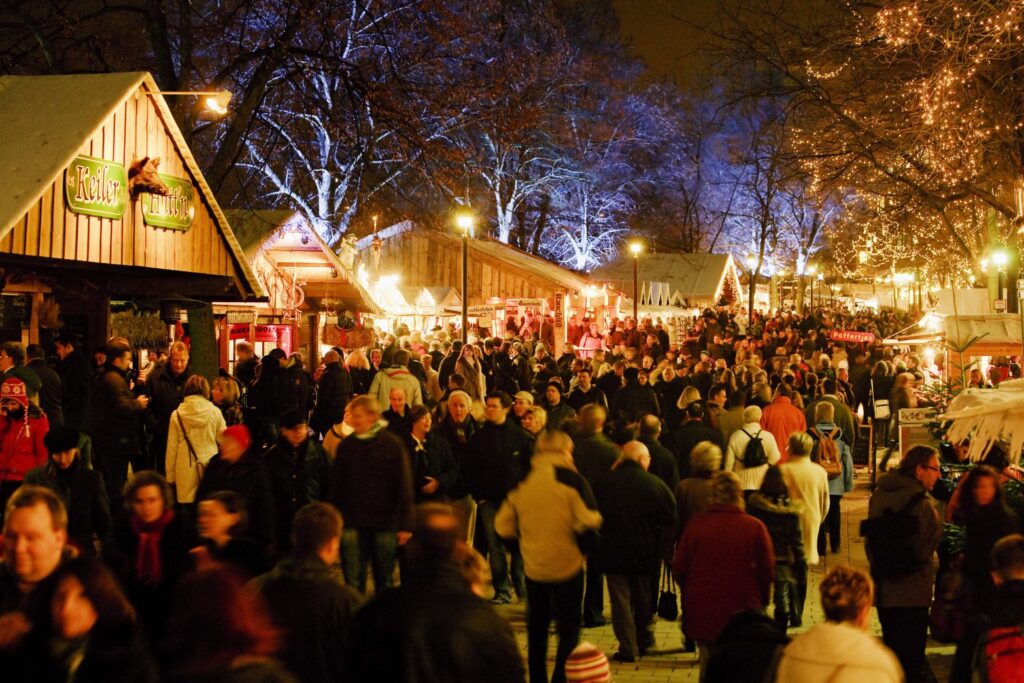
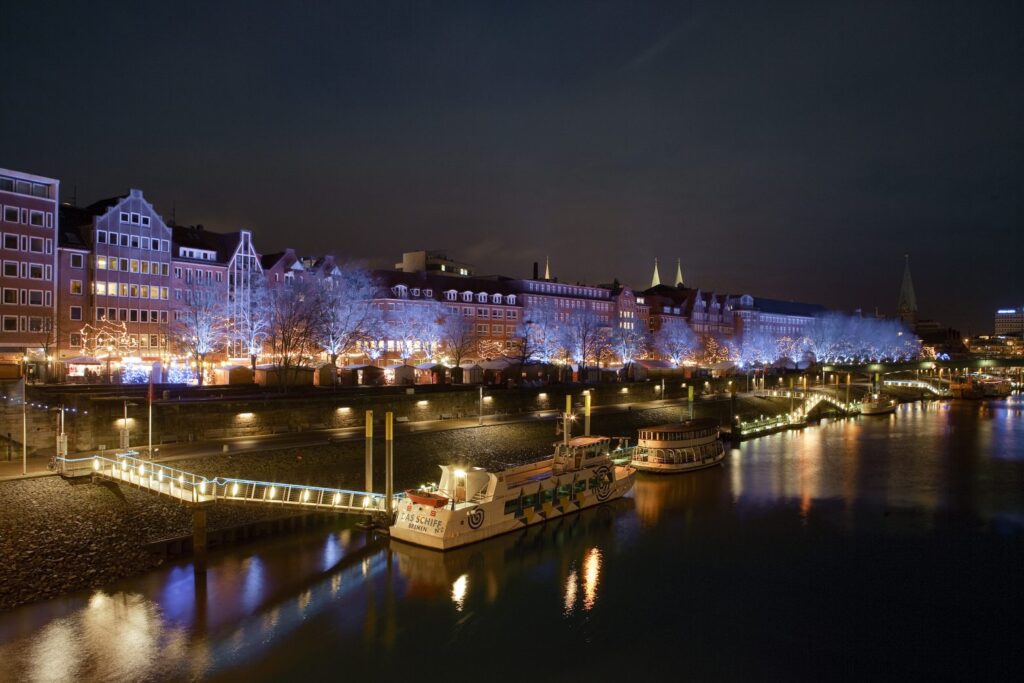
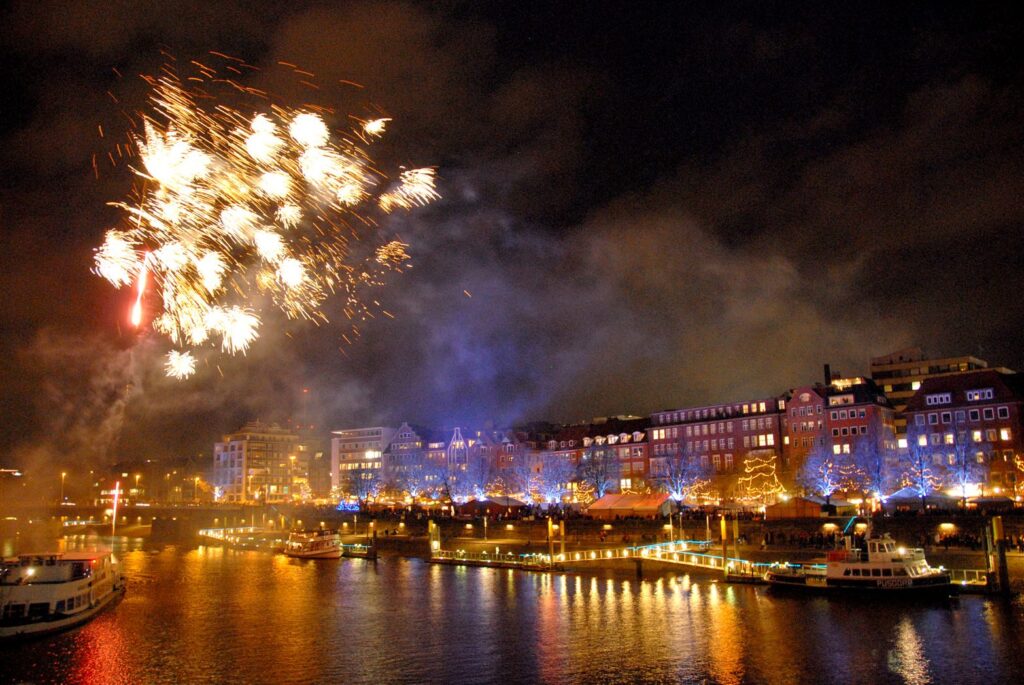
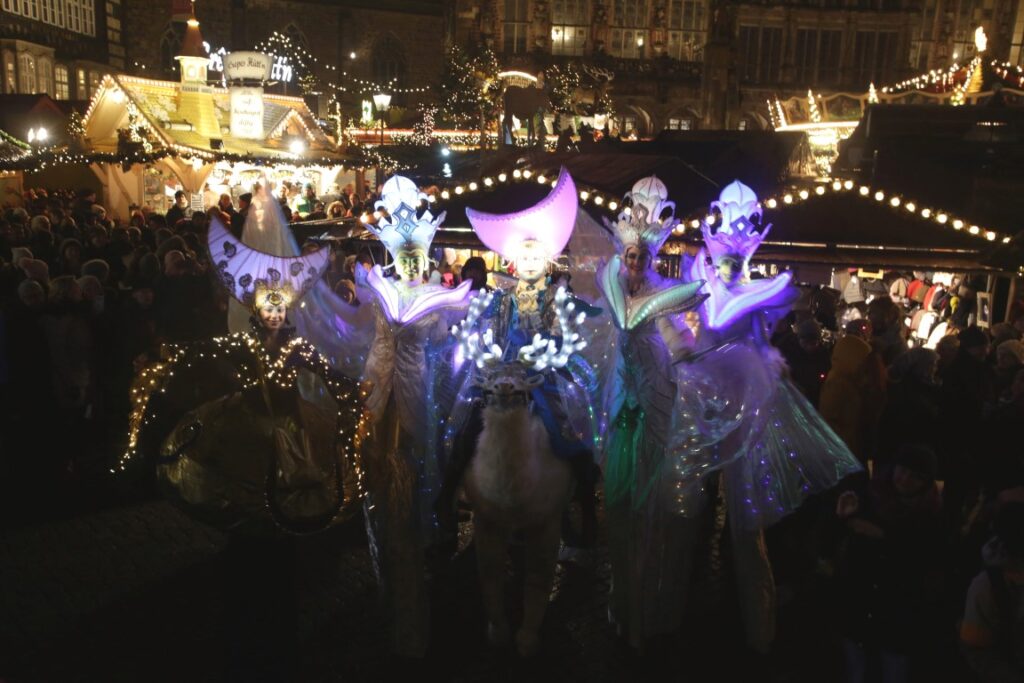
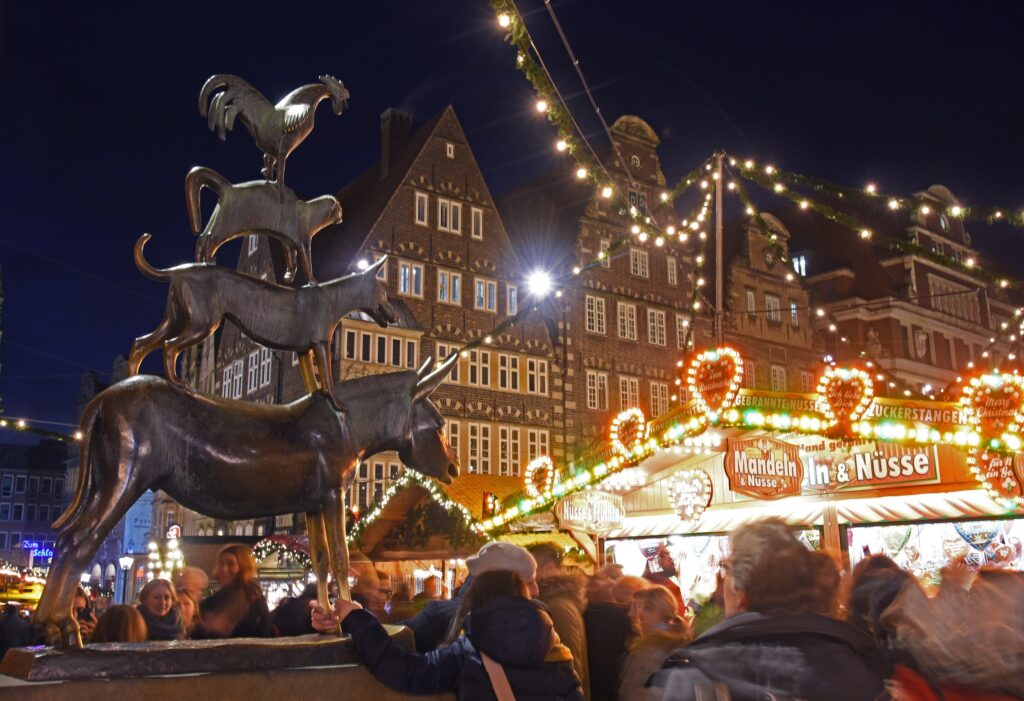
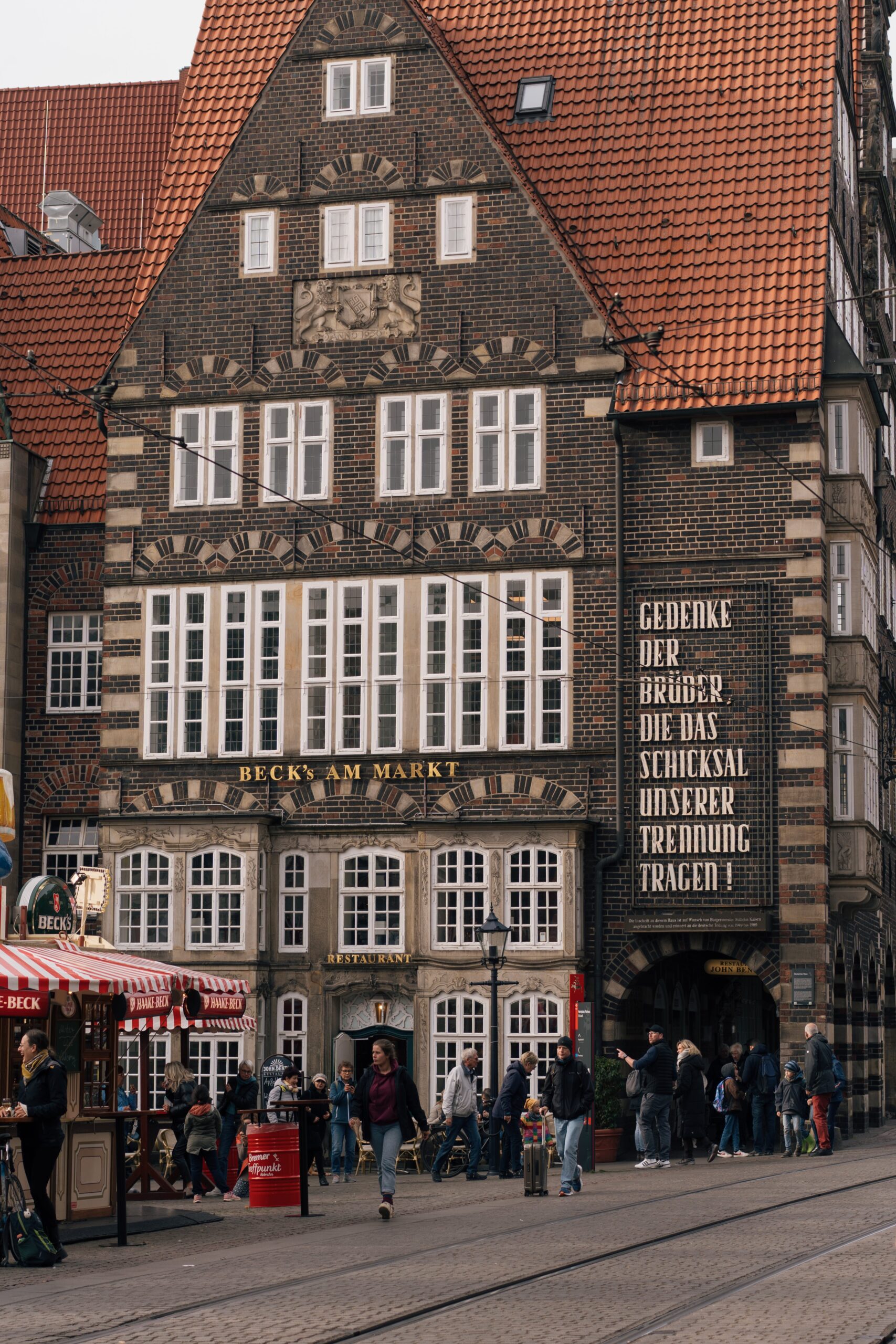
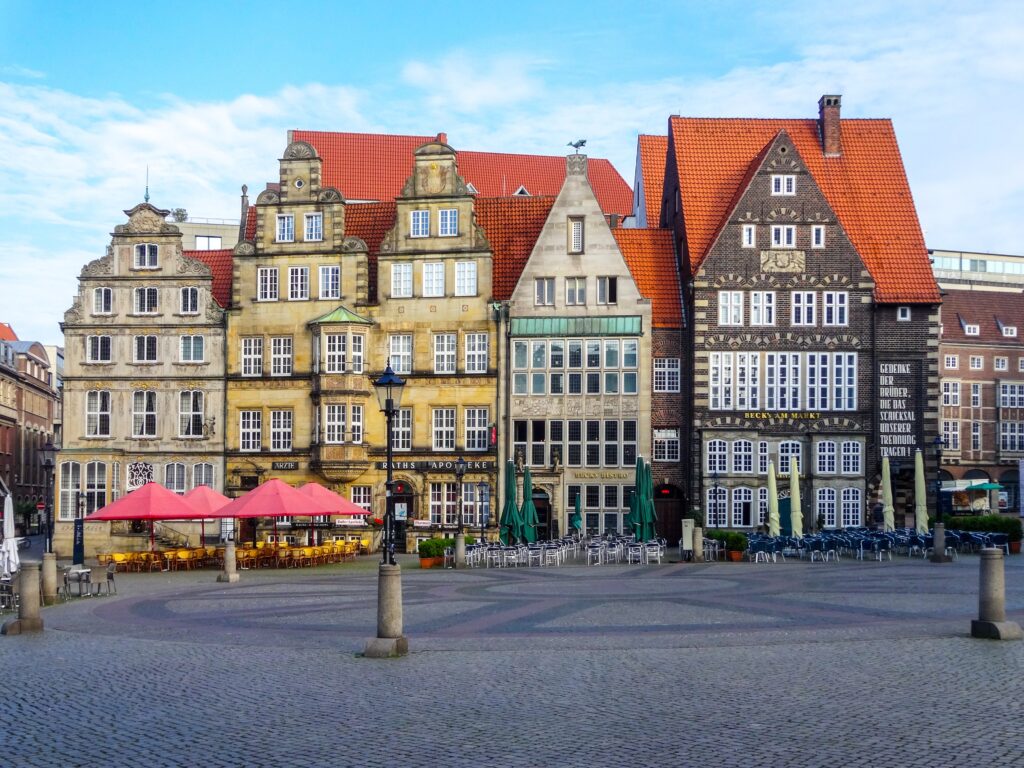
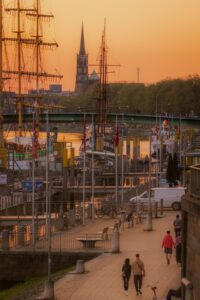
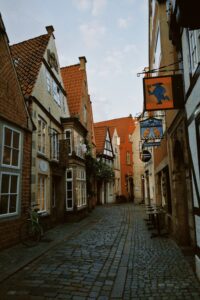
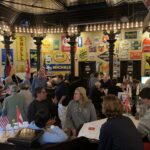
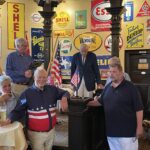

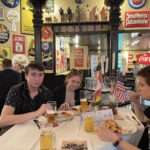
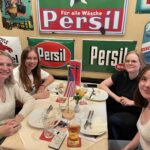
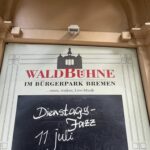
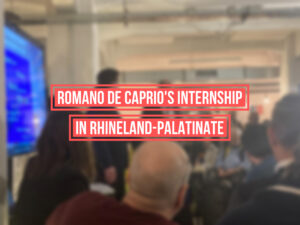
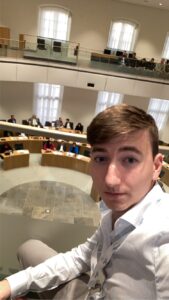 Mr. Schreiner is a member of the “Christlich Demokratische Union Deutschlands“ (CDU) in Rhineland-Palatinate, which is a successful Christian-democratic, conservative, and economically liberal party in Germany. He is the head of the ‘Klimaschutzpolitik’ for his faction, which means he has input in every form of climate protection-based policy in Rhineland-Palatinate. When I first arrived in Mainz at the end of March, I had no idea what to expect. All that I wanted to get out of this internship was to be able to see how the inner workings of German politics function. It did not take long for me to see Mr. Schreiner meet with numerous Mainz Citizens daily and work with them to better his beautiful city. On the very first night of my internship, Mr. Schreiner said to me “Come to my event tonight, it will give you a true insight into the way politics work here.”
Mr. Schreiner is a member of the “Christlich Demokratische Union Deutschlands“ (CDU) in Rhineland-Palatinate, which is a successful Christian-democratic, conservative, and economically liberal party in Germany. He is the head of the ‘Klimaschutzpolitik’ for his faction, which means he has input in every form of climate protection-based policy in Rhineland-Palatinate. When I first arrived in Mainz at the end of March, I had no idea what to expect. All that I wanted to get out of this internship was to be able to see how the inner workings of German politics function. It did not take long for me to see Mr. Schreiner meet with numerous Mainz Citizens daily and work with them to better his beautiful city. On the very first night of my internship, Mr. Schreiner said to me “Come to my event tonight, it will give you a true insight into the way politics work here.”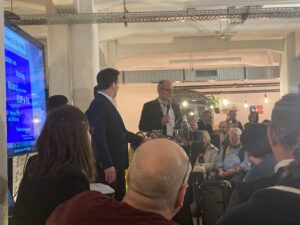 The event was called a podium discussion, which Mr. Schreiner was the moderator of. I was unaware until the beginning of the event that the two men discussing at the podium would be Nino Haase (non-party) and Christian Viering (Die Grünen), the two men running for Mayor and at the time in a run-off race. Although it was apparent that they were competing against each other, their civility and respect for one another were incredible. Even though I might not be German it was evident to me that both candidates had the goal to make Rhineland-Palatinate better for all. The event itself was delightful and truly set the tone for the rest of my time in Mainz. The next day I was able to sit in on the CDU-Fraktion’s group meeting where they discussed what they would say at the next Parliament meeting, and then I was able to witness them in action hours later as the Bundestag met. My everyday life in Mainz was simply enhancing and unimaginable, every day was so different from the last.
The event was called a podium discussion, which Mr. Schreiner was the moderator of. I was unaware until the beginning of the event that the two men discussing at the podium would be Nino Haase (non-party) and Christian Viering (Die Grünen), the two men running for Mayor and at the time in a run-off race. Although it was apparent that they were competing against each other, their civility and respect for one another were incredible. Even though I might not be German it was evident to me that both candidates had the goal to make Rhineland-Palatinate better for all. The event itself was delightful and truly set the tone for the rest of my time in Mainz. The next day I was able to sit in on the CDU-Fraktion’s group meeting where they discussed what they would say at the next Parliament meeting, and then I was able to witness them in action hours later as the Bundestag met. My everyday life in Mainz was simply enhancing and unimaginable, every day was so different from the last.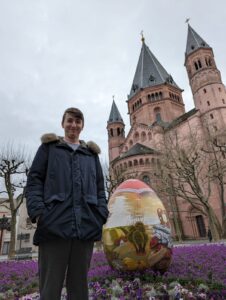 One day Mr. Schreiner took me to the city of Sinzig to meet with businessmen and discuss how to avoid another possible flood. After that meeting, Mr. Schreiner drove me around the town so that I could see the impacts of the last flood and he informed me of all the tragedies that occurred in a certain area. The next day we met with two architects from Berlin and Mr. Schreiner gave them a private tour of Dom St. Johannis, the older delicate Cathedral in Mainz. I was very lucky to see the insides of this beautiful historic Cathedral for myself, and I could not believe how spooky the hidden crypt aspect was.
One day Mr. Schreiner took me to the city of Sinzig to meet with businessmen and discuss how to avoid another possible flood. After that meeting, Mr. Schreiner drove me around the town so that I could see the impacts of the last flood and he informed me of all the tragedies that occurred in a certain area. The next day we met with two architects from Berlin and Mr. Schreiner gave them a private tour of Dom St. Johannis, the older delicate Cathedral in Mainz. I was very lucky to see the insides of this beautiful historic Cathedral for myself, and I could not believe how spooky the hidden crypt aspect was.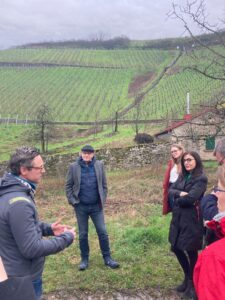 However, my absolute favorite experience of my internship did not even take place in Mainz. On a Friday in late March, Mr. Schreiner, his team, and I drove to a town called Würzburg in Bavaria. There we learned about the new innovative ways that people are becoming more carbon-friendly and what adaptations ‘Wine Mountains’ have made in the past few years. Both topics were insightful to learn about and everyone was extremely nice. It was tricky to understand the Germans from Bavaria because they have a very unique dialect, but I had an amazing time.
However, my absolute favorite experience of my internship did not even take place in Mainz. On a Friday in late March, Mr. Schreiner, his team, and I drove to a town called Würzburg in Bavaria. There we learned about the new innovative ways that people are becoming more carbon-friendly and what adaptations ‘Wine Mountains’ have made in the past few years. Both topics were insightful to learn about and everyone was extremely nice. It was tricky to understand the Germans from Bavaria because they have a very unique dialect, but I had an amazing time.